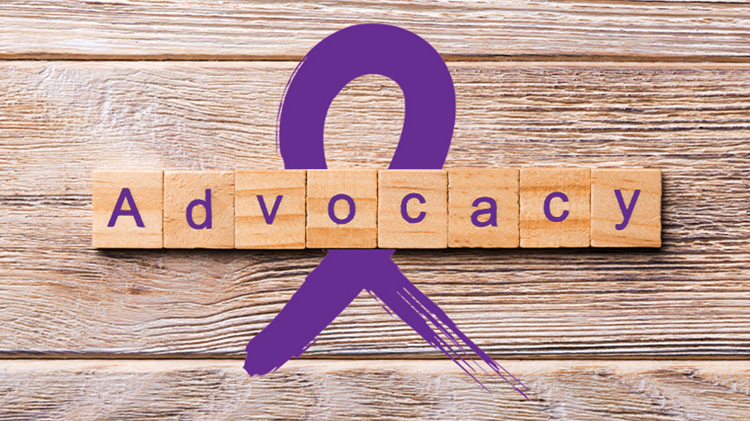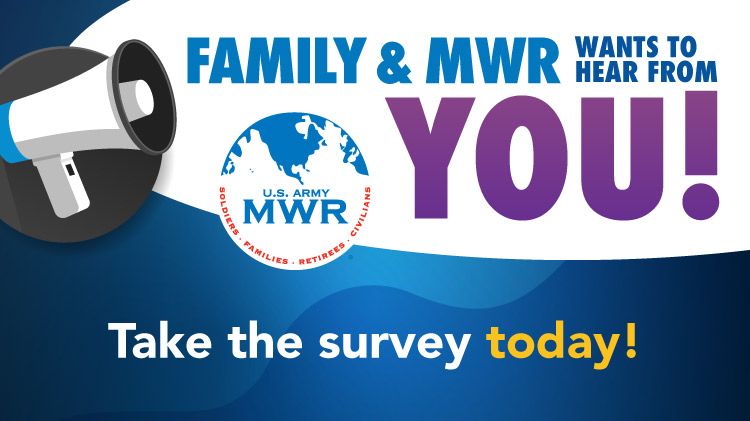- The right to be treated with fairness and with respect for your dignity and privacy.
- The right to be reasonably protected from the accused offender.
- The right to be notified of court proceedings.
- The right to be present at all public court proceedings related to the offense, unless the court determines that your testimony would be materially affected if you, as the victim, heard other testimony at trial.
- The right to confer with the attorney for the government in the case; the right to available restitution; the right to information about the conviction, sentencing, imprisonment, and release of the offender.
- Move to a room with easy access to an exit. Don't go to the kitchen, bathroom or near possible weapons.
- Know the quickest route out of your home. Practice escaping that way.
- Know the quickest route out of your workplace. Practice escaping that way. Domestic violence does not just occur in your home.
- Pack a bag and have it ready. Keep it hidden but make it easy to grab quickly.
- Tell your neighbors about your abuse and ask them to call the police when they hear a disturbance.
- Have a code word to use with your kids, family and friends. They will know to call the police and get you help.
- Know where you are going to go, if you ever have to leave.
- Use your instincts.
- You have the right to protect yourself and your children.
- United States Department of Justice Office on Violence Against Women
- National Center on Domestic and Sexual Violence
- Stalking Resource Center
- Statewide directory for laws, courts, emergency shelters, orders of protection
- Battered Women's Justice Project
- The Family Violence Prevention Fund
- Women's Justice Center– Also is Spanish
- Mind, Body, Spirit Empowered - Materials translated into many languages
- Marriage and Equality – Materials translated into many languages
- Provide crisis intervention and support 24/7/365
- Help file restricted and unrestricted reports
- Talk with you about how safe you are and plan for emergencies
- Give information on temporary financial support and other benefits to victims when the offender is separated from the military
- Coordinate emergency services, including transportation, housing, and food
- Assist in obtaining protective orders
- Accompany you throughout the medical, investigative, and legal processes
- Represent your interests through on-post processes
- Offer information and referral to medical, legal, counseling, and other resources
- Several places you could go if you leave your home
- People who might help you if possible, leave a bag of necessities at their house
- Getting a cell phone
- Opening a bank account/credit card in your name
- How you might leave
- How to take your children with you safely
- Children
- Money
- Keys to car, house, work
- Extra clothes
- Medicine
- Important papers for you and your children
- Birth Certificates
- Social security cards
- School and medical records
- Checkbooks, credit cards
- Driver’s license
- Car registration
- Welfare identification
- Passports, green cards, work permits
- Lease/rental agreement
- Mortgage payment book, unpaid bills
- Insurance papers
- Military Protective Order (MPO)/Civilian Protective Order (CPO), divorce papers, custody papers
- Address book
- Pictures, jewelry, sentimental items
- Items for your children (toys, blankets, etc.)
- Keep a copy of your MPO/CPO at work
- Give a picture of the abuser to security and friends at work
- Tell your supervisors – see if they can make it harder for the abuser to find you
- Don’t go to lunch alone
- Ask a security guard to walk you to your car or to the bus
- If the abuser contacts you at work, save voicemails and e-mails
- Get a cell phone.
- Get a MPO/CPO. Keep a copy with you at all times. Give a copy to the police, your children’s caregivers, schools, and your boss.
- Change the locks.
- Install a security system and outside lights.
- Change your number to be unlisted.
- Use an answering machine/voicemail to screen calls.
- Tell friends and neighbors your abuser no longer lives with you. Ask them to call the police if they see your abuser outside or near your home.
- Tell someone at work what has happened.
- Try not to use the same stores, banks, or businesses that you did when you were with your abuser.
- Find a safe way to speak with your abuser, if necessary.
- Take a self-defense course.
- Go over your safety plan.
- What help is out there for a victim?
-
Victim Advocates are available for any service member, Family member, or retiree who is in an abusive relationship and needs help. Victim Advocates will help you make an immediate and on-going safety plan, provide victims with information about their rights and reporting options, link victims to Military and Civilian resources, and provide support and advocacy to include accompaniment to medical appointments, court proceedings, and interviews with attorneys, police, and/or command. You can speak with a Victim Advocate by calling or visiting our office during regularly scheduled hours. There is also a Victim Advocate available 24/7.
Family Support is available if a Soldier/Offender is Discharged/Separated from the Army or Jailed Because of Abuse: A program called Transitional Compensation may provide an offender’s family with monthly payments, medical benefits and access to the PX and Commissary for up to three years, if the family meets all TC requirements. This benefit is in place for victims who might stay with an abusive spouse out of fear of losing money, healthcare, and housing. Contact a Victim Advocate to ask about this program - there are selection criteria to meet in order to be eligible. Learn more about Transitional Compensation (.pdf).
- Hotlines and Local Resources
-
- National Domestic Violence Hotline: +1 (800)799-7233
- Fort Liberty 24-hour Family Abuse Hotline: +1 (910)322-3418
- Womack Medical Center Emergency Room: +1 (910)907-6559
- Family Advocacy Program Clinical: +1 (910)907-6128
- Cumberland County CARE Center: +1 (910)677-2532
- Friend to Friend (Moore County): +1 (910)947-3333
- Haven of Lee County: +1 (919)774-8923
- SAFE of Harnett County: +1 (910)893-7233
- Hoke County Domestic Violence and Sexual Assault Center: +1 (910)878-0118
- Southeastern Family Violence Center: +1 (800)742-7794
These are just a few of the centers that offer private, supportive information on how to heal the relationship or how to safely leave it, depending on the victim’s desire. In many cases, the caller may be told that they can give their name, come in for help, and still receive private information, medical care and other support without having to initiate a Family Advocacy assessment, tell command or make a police report. Get more information on what military help (.pdf) is available.
Many foreign-born victims may have been threatened by their spouse that they will be deported or lose citizenship if they tell about the abuse. The Multicultural Readiness Program can help foreign-born spouses find help and supportive friends. Visit the Multicultural Readiness Program for more information on this program.
- What about my privacy? Do I have a choice?
-
Yes! All incidents of domestic violence should be reported, however there are two options to get help: restricted or unrestricted reporting.
Restricted reporting allows the victim, on a confidential basis, to disclose the abuse only to certain individuals (Victim Advocate, Healthcare Provider, or Military Chaplain) to receive medical care, counseling, and supportive services. This option can only be given when there is not a threat of serious or possible harm to the victim. Neither law enforcement nor command will be contacted.
- There are no issuances of military or civilian protection orders.
- To make a restricted report: contact a Victim Advocate or call the 24-hour hotline at the top of this page.
Unrestricted reporting allows the victim to receive medical care, counseling, and supportive services, and the abuse is reported to Law Enforcement and the service members command. An investigation is completed to ensure the safety and well-being of the victim and other Family members who may be at risk of harm.
In cases where there is an obvious danger of imminent threat of harm or the presence of child abuse, a Victim Advocate or Healthcare Provider may be required notify others to ensure the safety of all persons involved in the abusive situation. Anyone needing information or help for situations involving partner or spouse abuse, but is worried about their case being reported to command or Law Enforcement or about protecting their privacy, should still call someone. Victims can ensure their privacy by not giving their name until they feel completely informed about the options they have for getting help. Contact us Monday-Friday 8 a.m.-5 p.m. or call the 24-hour hotline at the top of this page any time to find out more about victim privacy. - I want to leave this relationship, but how do I do it safely?
-
Sometimes deciding to leave an abusive relationship is an extremely difficult decision and can be a time when you are more at risk of additional abuse and violence from the abuser. Victim Advocates will assist you with developing a safety plan (.pdf), filing a protective order, and connecting you to a local shelter, if needed. For more information about how to safely leave a relationship, please feel free to contact us. Remember, you do not have to do this alone! Call a Victim Advocate for support. We have support available 24/7.
- I’m not a victim, but I suspect that my friend is. What can I do?
-
The National Domestic Violence Hotline can give great tips and information on how to help a friend. Please consider referring a friend to professional help by asking them to contact the Fort Liberty 24-hour Victim Hotline listed at the top of this page or go to Family Advocacy Program Clinical +1 (910)907-6128. Do not attempt to take care of things yourself. Domestic Violence can be a very complex and potentially dangerous issue. How to help a friend or neighbor that you suspect is being abused (.pdf).
- Help for an abusive partner
-
Many spouses would like to find help for their abusive partner and many abusive partners may welcome this support. There are many counseling options and support groups within the community. If a partner is being physically abusive, marriage or couples counseling is often not a good option, but there are many other helpful options for assistance. Please call us for more information.
- What is the Commander’s role?
-
Commanders and other leaders are required to report Family violence, to seek help for all parties involved and to help ensure safety to the fullest extent possible. Commanders and the military or local police can provide a great deal of effective help, including documenting the abuse, arresting the offender, helping with securing a military or Civilian no-contact/protective order to ensure the victim is safe, helping to find legal assistance and ordering an offender/service member to treatment. Although commanders and leaders are concerned about the safety of Families in their units, they cannot ensure their safety unless they know about the abuse. They also understand that many victims will never come forward unless they have an option that will keep their situation completely private (restricted reporting). Commanders are expected to follow all guidance included in the Fort Liberty Installation Policy Letter 40. For more information please call the ACS FAP at +1 (910)396-5521 or call the 24/7 hotline number listed at the top.
- How are children affected by domestic violence?
-
Children in Family violence situations usually know something is not right, even if they have not directly witnessed a Family violence incident. Many offenders have learned their abusive behaviors from having grown up in an abusive home of their own. Children may display different reactions and coping skills, depending on their age. Younger children may blame themselves for the chaos around them which can create feelings of guilt, worry, and anxiety within the child already suffering unrest. Children may become withdrawn, non-verbal, and exhibit regressed behaviors such as clinging and whining. Eating and sleeping difficulty, concentration problems, generalized anxiety, and physical complaints (e.g., headaches) may also occur. If you would like more information, please contact any of the listed numbers on this page.
- Other Resources
-
- Legal Assistance: +1 (910)396-5506 or +1 (910)396-5306 or +1 (910)396-7268
- Army Emergency Relief (AER): This program can help with emergency financial assistance.

The Victim Advocacy Program (VAP) provides emergency and follow-up support services to adult victims of domestic abuse. Advocacy services are available to Service members, their current or former spouses, an individual with whom the Service member shares a child, and significant others of Service members who live together. Our services are available twenty-four hours a day, seven days a week.
Our trained professionals are here for crisis response, information on reporting options, medical treatment options, law enforcement’s response, emergency services, safety planning, obtaining military and civilian protective orders, and accompaniment to medical forensic exams and medical appointments, as well as accompaniment to court for orders of protection hearings and trials. Advocates work closely with their civilian counterparts and ensure a personal and smooth transition for victims who do not qualify for ongoing advocacy services within the military community.
If you need help or want more information, contact the Victim Advocacy Program Manager at your local Army Community Service Center.
Reporting Options
The Army is fully committed to ensuring victims of domestic abuse are protected; treated with dignity and respect; and provided support, advocacy and care. The Army strongly supports effective command awareness and prevention programs, and holding offenders accountable.
There are two types of reporting options: Restricted Reporting and Unrestricted Reporting. Personnel should report all suspected cases of domestic abuse promptly, which quickly activates victim services and accountability actions. However, we understand things might not always work that way. Victims might need medical attention or victim services without command or a law enforcement response. Therefore, the Army has implemented a Restricted Reporting Option for victims to confidentially disclose allegations of abuse and receive needed medical treatment and services.
Restricted Reporting
Allows someone who meets VAP criteria and who is experiencing violence in his/her relationship to confidentially disclose the abuse to a Victim Advocate, a Victim Advocate Supervisor, or a Healthcare Provider. When an individual chooses a restricted report, law enforcement is not involved and there is no investigation of the abuse. In addition, the Soldier’s Command is not notified of the abuse and is unable to offer assistance and protection.
The restricted reporting option allows an individual to receive medical treatment, advocacy services and clinical and pastoral counseling. This option allows one to receive needed services, control the release of his/her personal information, and time to consider his/her options.
Under this reporting option, the offender is not held accountable and the abuse may continue. If an assessment reveals a high risk for future injury, a restricted report may not be granted.
Unrestricted Reporting
Victims of domestic abuse who want to pursue an official investigation of an incident should report the abuse to law enforcement, or the alleged offender’s Commander. The unrestricted reporting option provides a victim with the widest array of services available including but not limited to command involvement, law enforcement involvement, medical treatment, advocacy services, and counseling services.
Not all incidents of domestic abuse are the same, and each person who experiences domestic abuse handles the situation differently.
Command Response
Commanders play an integral part in ensuring the safety, health, and well being of our Army Families. Commanders who learn of an incident of domestic abuse are required to notify law enforcement.
Victim’s Rights
Safety Planning
A violent relationship puts you and your children at risk for injury and even death. Developing a safety plan tailored to meet the needs of your family will enable you get out of a potentially dangerous situation. If your children are old enough, mature enough, or even responsible enough to assist you during a violent or potentially violent episode of domestic abuse, you may consider including them in your plan to keep everyone safe. A good safety plan considers which steps to take if you choose to stay in the relationship or if you choose to leave.
Here are some tips during the explosive phase of domestic abuse:
Develop a Safety Plan
Protection Orders
Military Protection Orders (MPO)
Unit Commanders may issue a Military Protective Order (MPO) to ensure the safety of service members, family members, and other individuals from the threat of domestic violence. An MPO is a written lawful order issued by a commander that orders a Soldier to avoid contact with his or her spouse or children. The commander should provide a written copy of the order within 24 hours of its issuance to the protected person, the Military Police and civilian law enforcement. An individual should report violations of the MPO to law enforcement.
Civilian Protection Orders (CPO)
A Civilian Order of Protection is an order signed by a Judge that directs an individual to stop abusing, stalking, harassing and/or committing acts of sexual violence against an individual. An individual may file a CPO against current or former spouse, someone that an individual shares a child in common, an individual with whom you have shared a residence with, someone related to you by blood or marriage or someone with whom you have dated or had intimate relations.
National Resources
Victims of domestic violence and sexual abuse have round-the-clock access to services, including emergency assistance, information, referrals, and ongoing support in accessing medical, behavioral health, legal, and law enforcement services on and off garrisons. Victim Advocates will discuss the option of restricted and unrestricted reports.
Domestic Violence Hotlines
All Army installations have a 24/7 Family Advocacy Program (FAP) Domestic Abuse Victim Advocacy Hotline.
Domestic Abuse Victim Advocacy Program
Standing Against Abuse Together
The Army’s Domestic Abuse Victim Advocacy Program provides comprehensive assistance and support to victims of domestic abuse, including crisis intervention, risk assessment, safety planning, assistance securing medical treatment, information on legal rights and proceedings, and referrals to military and civilian shelters and other resources available to victims. Child advocacy services are provided to non-offending parent/guardians of children when directed by the FAP or by a judge.
What is a Domestic Abuse Victim Advocate (DAVA)?
Domestic Abuse Victim Advocates (DAVAs) are trained professionals who provide non-clinical advocacy services and support to Soldiers and Family members experiencing domestic abuse. DAVAs are on call 24/7 to provide immediate assistance, safety planning, non-judgmental support, and information on available resources.
What is Domestic Abuse?
Domestic abuse is a pattern of behavior resulting in emotional/psychological harm, economic control, and/or interference with personal liberty. The abuser could be a current or former spouse, someone you share a child with, or a current or former intimate partner you’ve shared a home with. Domestic abuse is a crime. So is violating a protective order.
Domestic Abuse Victim Advocates can
How to Keep Yourself Safe
You can take steps to keep yourself and your children safe, and you can prepare to leave an abusive partner. Here are things to consider.
What Should I Do If I Am Thinking About Leaving My Abusive Partner?
Think about the following:
Take the following items with you, if possible:
How Can I Keep Myself Safe At Work?
What Can I Do to Keep Myself Safe If I Have Left My Abuser?
Check out this Military One Source link for additional support regarding intimate partner violence.





